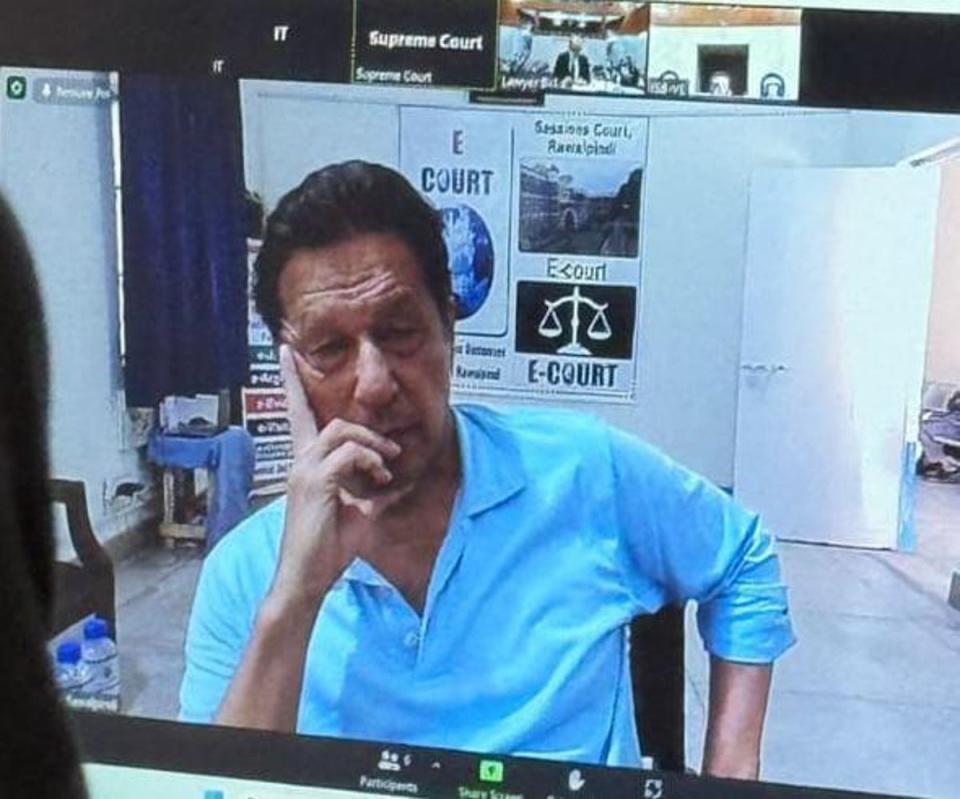Imran Khan seen for first time in nine months as he appears in court via video link
Pakistan’s former prime minister Imran Khan was seen for the first time in nearly nine months as he appeared in the Supreme Court via video link on Thursday.
A picture of Mr Khan, who was arrested on corruption charges in August last year, was widely circulated on social media.
Mr Khan sat with his hand and a frown on his face.
His appearance was expected to be streamed live on the Supreme Court’s website and YouTube, but it’s still unclear why it wasn’t. The former prime minister’s supporters and Pakistan Tehreek-e-Insaf party were kept waiting for the proceedings to be streamed live.
Mr Khan, 71, a popular cricketer-turned-politician, has been sentenced to 14 years in jail in a case linked to the illegal selling of state gifts. Mr Khan and his wife stand accused of keeping and selling state gifts during his time as prime minister.
Mr Khan and his wife have denied the allegations and called them “politically motivated”.

The Supreme Court this week ordered the government to ensure Mr Khan was produced before it via video link and it then granted his request to represent himself.
Since he was ousted as prime minister in a no confidence vote in April 2022, Mr Khan has been hit with more than 170 criminal charges, ranging from contempt of court to terrorism and incitimengt to violence.
In previous interviews with The Independent, Mr Khan said he faced a threat to his life and vowed to continue fighting for the people of the country.
Mr Khan’s court appearance on Thursday came in a case related to amendments to Pakistan’s anti-corruption laws. The Shehbaz Sharif government in May 2022 amended the National Accountability Bureau Ordinance, a move seen as an attempt to curtail the power of the country’s apex anti-graft body.
In June 2022, Mr Khan challenged the amendments in the Supreme Court and said he would “eliminate any whitecollar crime committed by public officeholders”.

The former prime minister remains popular in Pakistan. He alleges that the no confidence vote that led to his ouster and the subsequent criminal cases were an attempt by the country’s powerful military to sideline him and keep him from returning to power, charges denied by the military and the government.
In the 8 February national election, independent candidates backed by Mr Khan won far more seats than any other party even as he remained in jail. However, the candidates were not able to form a government as they refused to engage in coalition talks with other parties.
After a political deadlock that lasted almost a month, Pakistan’s parliament finally elected Shehbaz Sharif as new prime minister on 3 March.


